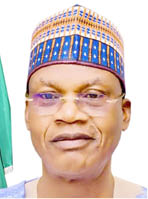The quest to finish school with good grades has continued to push many students into engaging in examination malpractice. This is despite efforts by the government, groups and examination bodies to stem the problem.
This menace of exam malpractice has continued to linger because of the involvement of teachers, schools, supervisors and parents.
According to experts, fear and anxiety are pressures that ‘push’ students to want to do well, and this usually leads to all forms of examination malpractice, adding that laziness and inadequate preparation for examination are also important causal factors of examination malpractice.
This buttresses the saying that ‘he who fails to prepare, prepares to fail’, and since many students who fail in preparation or take their studies without seriousness are bent on passing at all costs, ways and means to cheat become their only option.
However, as a result of the adoption of technology and the introduction of new policies by examination bodies, the rate of students’ involvement in malpractices, which usually includes impersonation, carrying foreign materials, copying from colleagues, and aiding by teachers and supervisors, among others, the number of perpetrators is beginning to register a drop.
Recently, the Registrar of the National Examinations Council (NECO), Prof. Dantani Ibrahim Wushishi, while announcing the release of the July/August 2023 Senior School Certificate Examination (SSCE) results, said the number of students involved in malpractice had dropped as against what they recorded last year.
Wushishi, who described the 2023 result as the best so far, also disclosed that 12,030 (0.07%) candidates out of the 1,196,985, who sat for the examination were involved in various forms of malpractice. This is against the 13,594 (0.13%) recorded in 2022.
He also disclosed the involvement of schools and supervisors, saying 93 schools were found to have been involved in whole school (mass) cheating, and 52 supervisors were recommended for blacklisting due to poor supervision, aiding and abetting during examination.
“They will be invited to the council for discussion, after which appropriate sanctions will be applied,” he said.
Meanwhile, a breakdown of the results obtained by Daily Trust showed that the 12,030 students involved in various forms of malpractice were for offences including bringing in foreign materials, use of electronic gadgets, irregular activities inside or outside the examination hall, aiding and abetting, seeking and receiving help from non-candidates, unruly behaviour in the examination hall, collusion and impersonation.
Others were absent but had answers script(s), cheating detected at the marking venue (double scripts), cheating detected at the marking venue (copying foreign materials), use of electronic communication gadgets brought into the hall, leakage (individual) and individual insults or assaults and violent behaviour.
Over 20 states recorded many candidates involved in malpractice
A breakdown of the 2023 SSCE results showed that the examination body recorded malpractice in all 36 states and FCT. Kaduna, Kano, Lagos and Katsina led with the highest number of candidates involved in malpractice, with 1,306, 1,289, 1,105 and 1,022 while the three states of Cross River, Kebbi and Edo had the least, with three, three and nine candidates, respectively.
The states with the highest number of cases of malpractice also included Borno with 790, Plateau, 717 and Niger 709, while states like Akwa Ibom had 591, Jigawa 551 and Nasarawa 503 candidates.
Kwara followed with 395 candidates, Osun 381, Gombe 339 while Sokoto followed with 285, Taraba 273, Oyo 215, Ogun 207 and Zamfara 190 candidates.
Other states are Ebonyi, which recorded 145 candidates, the FCT 102, Kogi and Enugu 94 candidates each and Rivers 92 candidates, Ondo had 90, Bauchi 85, Adamawa 70 and Delta 60 students involved in malpractice.
This is followed by Yobe with 57 candidates, while Abia and Ekiti have 41 and 39, respectively.
6 states record low number of cheating candidates
Six states recorded a low number of candidates involved in malpractice. Imo State recorded 19, Anambra 13, Bayelsa 13, while Edo, Kebbi and Cross River states recorded the lowest numbers with 9, 3 and 3 respectively.
Analysis of malpractice by subjects
An analysis of the data showed that the 12,030 candidates involved in malpractices cut across different subjects. Leading the table is mathematics, with 2,301 candidates involved, while English Language followed with 2,049, and civil education, with 843 candidates.
These are followed by physics with 767 candidates, economics 698, animal husbandry 660, biology with 588, and chemistry 516 candidates.
Marketing had 499 candidates, computer science 498, literature in English 465, government 403, geography 401, agriculture 249, Islamic studies 217, metal work 191, and Christian religious knowledge 155 candidates involved.
Hausa has 89 candidates, Commerce 91, Financial Accounting 87, Yoruba 41 and Data Processing 82 erring candidates.
However, other subjects like Arabic, catering, Igbo and fishery, among others, have fewer candidates, ranging from 1 to 18, involved in malpractice.
How we are fighting malpractice – Wushishi
Reacting to the development, Professor Wushishi said on assumption of office, he took a critical assessment of the activities of NECO and initiated policies that have brought about a positive turnaround in the council and also a drop in the number of candidates engaged in examination malpractice.
He listed some of the measures he took to address the menace, including effective conduct of accreditation and re-accreditation exercises in schools, biometric data capture of candidates to check the impersonation of candidates registered for examinations, and to help identify ‘miracle centres’ where examination malpractices are perpetrated.
The NECO boss also noted that officers of the Nigeria Security and Civil Defence Corps (NSCDC) were engaged to provide security at examination centres and to prevent miscreants and agents of examination malpractice, as well as the provision of covert operations by the officers of the Department of State Service (DSS) to guard against compromising examinations through the internet.
They also ensured the daily distribution of examination question papers and other sensitive materials and the monitoring of marking exercises to ensure that best practices were observed, among others.
Prof. Wushishi noted also that the council’s ability to successfully conduct examinations and the timely release of results are worthy of note.
To encourage the staff to shun engagement in any form of malpractice, he said: “I enhanced the honorarium of examiners and other ad hoc staff engaged by the council, set up various committees geared towards enhancing the efficiency and effectiveness of the council’s operations, as well as prompt and full payment of Duty Tour Allowance (DTA) to officers on out-of-station assignments.
“There is also the development of ICT software to enhance and ensure fairness in the posting of staff for assignments. This has brought about relative calm and peace in the council, as there is nothing like favouritism in posting for assignment any longer,” he added.
He said he made effort to improve the welfare of workers for optimum productivity and that robust welfare packages were put in place with the approval of the governing board to deter the staff from involvement in malpractices and other forms of criminal activities.
“A retirement benefit package took effect from January 2022. In the same vein, and with effect from the same date, an insurance policy for all staff took off. The benefits of both welfare packages are legion, considering the delays in accessing pension and gratuity upon retirement from service and the risks and hazards associated with the NECO work,” he said.
While noting that he ensured the provision of an e-library to enhance access to information and data on educational assessment, with a view to enhancing job efficiency in test development, quality assurance, and curbing examination malpractice and other infractions associated with public examinations, he said the council also organised sensitisation workshops on the role of education stakeholders in tackling examination malpractice in Nigeria, in collaboration with the National Assembly, which were held in Lagos, Uyo and Abuja in 2022.
Speaking on the use of technology, he said there was an expansion of zonal offices, the construction of new buildings, the rehabilitation of existing structures and infrastructure, and equipping them with relevant ICT facilities to make NECO responsive to the realities of the 21st century, where technology is key.
“There is also the unveiling of the NECO e-verify app for result verification and confirmation in 2023, which would substantially address the issue of certificate forgery and the presentation of fake results for the purpose of admission into tertiary institutions and even at workplaces,” he said.
Prof. Wushishi, who was delighted with all the reforms in the council, said the removal of NECO from among ministries, departments, and agencies (MDAs) that remit 25 per cent automatic direct deductions to the Federal Government Consolidated Revenue Fund (CRF), which had greatly stifled the council of funds to carry out its mandate, was a great feat.
Malpractice can’t be eradicated completely – Educationist
An educationist, Sophia Emmanuel, has said examination malpractice may not be eradicated completely because there are still students who do not believe in their abilities and parents who are desperate to make their children feel among ‘A’ level students.
“People will keep trying to engage in malpractice in whatever form, but the onus is not just on the exam bodies to keep being ahead of them, but on school owners, teachers, and supervisors to stop their involvement,” she said.
She, however, commended the examination bodies for improving from what was obtainable years ago, saying they needed to do more, especially in rural areas and some private schools located because that is where many people who seek malpractice go to register.
“The truth is that the schools, teachers, and supervisors are more culpable than the examination bodies. If they can stop getting involved in the act, then I can assure you malpractice will be a thing of the past,” she said.
She further adds that the record of high numbers involved in English and mathematics is due to the quest for compulsory credit in the subjects and an indication that many are desperate and want to make it at all costs.

 Join Daily Trust WhatsApp Community For Quick Access To News and Happenings Around You.
Join Daily Trust WhatsApp Community For Quick Access To News and Happenings Around You.


